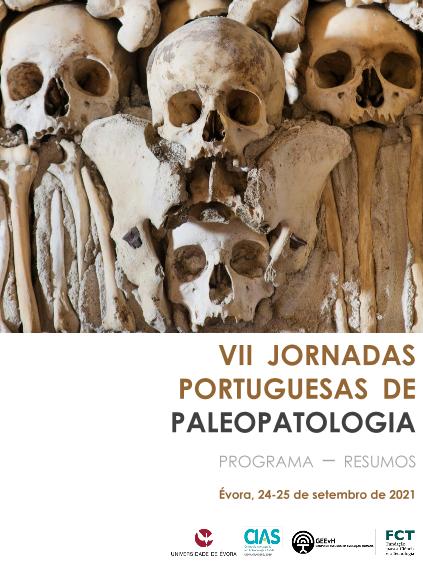Evento
Exploring inequality through degenerative joint disease in a colonialspanish-American city (foundational area in the city of Mendoza, Argentina)
Colaboradores:
Curto, Ana; Lepes, Célia; Relvado, Claudia; Silva, Filipa Cortegosao; Curate, Francisco; Assis, Sandra; Fernanades, Teresa; Matos, Victor
Tipo del evento:
Congreso
Nombre del evento:
VII Jornadas Portuguesas de Paleopatologia: a saúde e a doença no passado
Fecha del evento:
24/09/2021
Institución Organizadora:
Universidade de Coimbra. Centro de Investigação em Antropologia e Saúde;
Título del Libro:
VII Jornadas Portuguesas de Paleopatologia: a saúde e a doença no passado. Programa-Resumos
Editorial:
Universidade de Coimbra. Centro de Investigação em Antropologia e Saúde
ISBN:
978-989-99391-9-6
Idioma:
Inglés
Clasificación temática:
Resumen
The colonial society of Mendoza (middle west of Argentine, 16th-19th century) was characterized as a caste-stratified system in which inequality was a distinctive feature. From a paleopathological perspective, these asymmetries were evaluated through a study on general health and living conditions (i.e., dental health, diet, nutritional metabolic stress) in sectorized burials of the temples (interior/exterior) according to the socioeconomical background of the diseased/family. Understanding that functional-mechanic stress is an analytical perspective that complements the problem, the objective is to evaluate the distribution of the Degenerative Joint Disease among groups from different socioeconomical backgrounds buried in five temples at the Foundational Area of Mendoza site. Appendicular joint surfaces of 67 adults of either sex were relieved detecting a statistically significant prevalence between individuals in the interior (I) and the exterior (E) in shoulders (I=35,3%; E=23,8%; p=0,009), wrists (I=35,3%; E=25%; p=0,050) and knees (I=62,2%; E=51,5%; p=0,021). When comparing the prevalence between sexes for each sector, there were statistically significant differences in males for shoulders (M=57,1%; F=20%; p=0,036), wrists (M=66,7%; F=10,5%; p=0,001) and knees (M=81,8%; F=43,5%; p=0,013). These biomechanical demand patterns together with influential factors such as age and body size identified in the tendencies are analysed.
Archivos asociados
Licencia
Identificadores
Colecciones
Eventos(CCT - MENDOZA)
Eventos de CTRO.CIENTIFICO TECNOL.CONICET - MENDOZA
Eventos de CTRO.CIENTIFICO TECNOL.CONICET - MENDOZA
Citación
Exploring inequality through degenerative joint disease in a colonialspanish-American city (foundational area in the city of Mendoza, Argentina); VII Jornadas Portuguesas de Paleopatologia: a saúde e a doença no passado; Coimbra; Portugal; 2021; 54-54
Compartir




